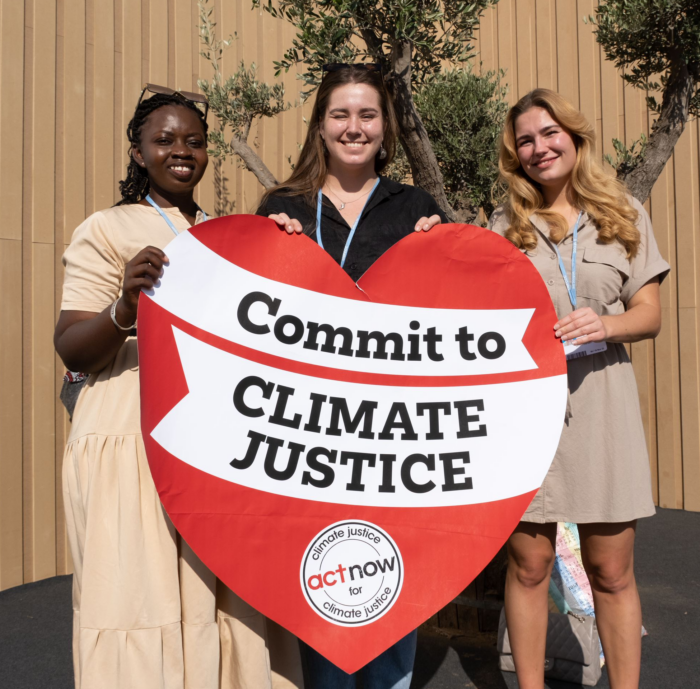By Emma Berglund, Lauri Heikkinen, Patricia Mungcal

Young people have long been a driving force behind social change for a better world, with every generation owing much to those who came before. Today, climate change represents the most momentous challenge of our age.
The concept of climate justice, an equitable sharing of the burden caused by a changing climate, is a crucial part of the way forward as we try to navigate our way through a changing climate. Emissions per capita in the Global South represent a fraction of those of the Global North. Those who have polluted the most are exacerbating the problems felt in parts of the world less able to respond to those problems.
Extreme weather events are more and more frequent and ever larger swathes of the world are at risk of becoming uninhabitable. By 2050, an estimated 216 million people are expected to be displaced due to climate change, according to the World Bank. (https://www.worldbank.org/en/news/press-release/2021/09/13/climate-change-could-force-216-million-people-to-migrate-within-their-own-countries-by-2050)
Young people are living their lives and building their futures in an environment of increasing uncertainty and risk, contemplating a world of hazards and even the existential risk posed by the climate crisis. This must come with proper representation in places where consequential decisions are made, including COP27.
While young people may, for the moment, lack experience and technical expertise, we have a wealth of knowledge and lived experience. We know how our lives and those of our peers around the world are affected by climate change. We can offer fresh ideas on how to tackle the climate crisis, and think beyond traditional political and economic constraints. Those who will live with the consequences of decisions made today should be heard in earnest.
It would be a mistake to claim that young people have fallen into the trap of inaction in the face of exclusion. All across the world, young people have ingenious and inspiring ways of fighting back in the face of a challenge that is truly momentous. But young people are tired of having to justify the importance of being heard when their future is being discussed. What should be self-evident is instead cause for campaigning, even in the face of ever more targets being missed and pledges forgotten. This cannot be. The presence of young people and those who come after us must be built into institutional mechanisms instead of being seen as a mere afterthought or a convenient photo opportunity.
As the ACT Alliance Youth CoP, we feel that the role of young faith actors and leaders in driving change cannot be overstated. Our power to mobilise communities must be recognized and put to good use in the fight against climate change. The traditions we represent can contribute meaningful moral, economic, spiritual and social substance to public debates and deliberations.
Faith leaders also have a crucial role to play in taking action. We must use our platform and leverage to educate and advocate for climate justice. We must now face up to what we have lost and will continue to lose, while making the best of a bad situation. Climate finance that properly accounts for loss and damage is urgently needed.
“I brought you into a fertile land to eat its fruit and rich produce. But you came and defiled my land and made my inheritance detestable.” (Jeremiah 2:7)
If we are truly the custodians of this planet, we must step up and assume our role and all that it entails. Creation is not for us to lay waste to. Change is possible, but can only happen through action.
In the spirit of taking action, the Youth CoP has launched the Climate Caravan, aimed at highlighting stories of hope from young people, both in the Global North and South. Fear is understandable, but it is important to channel that fear into something concrete.
Emma Berglund, Lauri Heikkinen and Patricia Mungcal, co-chairs of ACT’s Youth Community of Practice (CoP) wrote this article. Follow their COP27 activities on Twitter: https://twitter.com/ACTYouthcop
